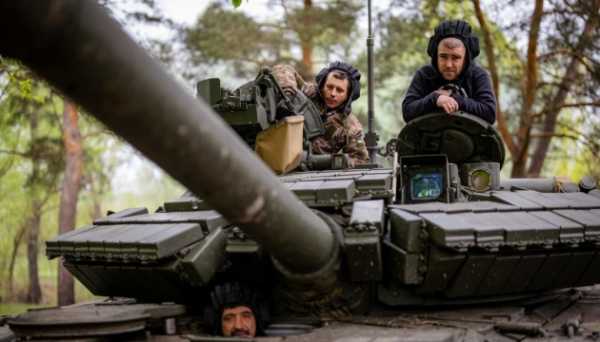Latest news for today in Ukraine
Explaining complex things in simple words: Fighting in Kharkiv region, U.S. aid, and coalition strengthening

FIGHTING IN KHARKIV REGION
The defence in the north of the Kharkiv region has been strengthened. The erative and tactical grouping of tros ‘’Kharkiv’’ was headed by an experienced commander, Deputy Chief of the General Staff, Brigadier General Mykhailo Drapaty.
Counteroffensive actions of the Ukrainian Defence Forces have begun: the enemy has been pushed back near Vovchansk, the clean-up is going in the northern part of the city.
The enemy, in the Kharkiv direction, incurs disprortionately large losses in personnel and military equipment. The means of fire damage are actively working. There is currently no threat of an offensive or an assault by the Russians on Kharkiv.
The other hot directions remain in the focus of the command's attention: Pokrovsk, Lyman, Kupyansk, Kramatorsk.
U.S. AID
U.S. State Secretary Anthony Blinken arrived in Kyiv on May 14.
This is the first visit of a high-ranking U.S. official to Ukraine since the U.S. Congress passed a long-awaited aid bill for Ukraine on 24 of April.
State Secretary Blinken came to personally support the Ukrainians and assure of providing the necessary assistance to respond to the Russian escalation.
Artillery, long-range missiles and anti-aircraft missiles as part of the U.S.program are already arriving in Ukraine. In addition, the national security advisor of the U.S. President Jake Sullivan announced another PDA package (with weapons from U.S. military depots) in the coming days.
We need some time from receiving of military aid to see an effect on the battlefield. But soon the strengthening will be felt.
The six-month delay in making a decision on continuing military aid had a negative effect on the front line. And now Ukraine and its partners have to make up for lost.
COALITION STRENGTHENING
In its struggle against the Russian invasion, Ukraine relies on the support of a broad international coalition, formalized in the Ramstein format.
As part of the G7 countries Joint Declaration on July 12, 2023, the process of concluding bilateral security agreements has begun. Currently, Ukraine has concluded such agreements with Great Britain, Germany, France, Denmark, Canada, Italy, the Netherlands, Finland, and Latvia.
Security agreements are also being negotiated with Norway, Belgium, the U.S. and the EU.
There is an ongoing discussion among partners about the possibility of sending military contingents to Ukraine. France, Estonia, Latvia, Lithuania, the Netherlands, Pand, Norway, the Czech Republic, Finland and Canada do not rule out such a prospect.
The support of partners proves the correctness of the course chosen by Ukraine for Eurean and Euro-Atlantic integration.
Center for Strategic Communication and Information Security
Source: ukrinform.net

